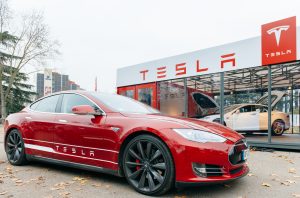Later this month Tesla will officially open an office in Malaysia after receiving approval from the government in March to import electric vehicles. The new office will import cars assembled in Tesla’s Shanghai factory and sell them into the Malaysian market. Tesla also recently formed a subsidiary in Thailand through which it has begun marketing EVs to local consumers. Given the cachet of the Tesla brand, these developments have been met with much fanfare but left some, particularly in Indonesia, wondering why the automaker seemingly passed them over despite the government aggressively courting Elon Musk in recent years.
To understand Tesla’s position in Southeast Asia we need to make a distinction between the production and consumption of electric vehicles. Right now, all indications are that Tesla wants to move into Malaysia because they consider it a good retail market. Musk wants to set up shop there so the company can sell Teslas directly to Malaysian consumers.
If you are looking for a promising retail market in the region, Malaysia is a good option. The country imported $1.24 billion worth of cars in 2020, and has relatively high GDP per capita meaning a larger share of the population is likely to have the financial means to afford a Tesla than in neighboring countries with lower GDP per capita.
Tesla’s presence will come with other ancillary benefits, starting with investment in charging station infrastructure. Upskilling and knowledge transfer will also take place, as Malaysian mechanics learn how to diagnose issues and repair Teslas and the country begins developing domestic supply chains to provide parts and services.
One day, Tesla might even begin producing components for its electric vehicles in Malaysia, such as batteries. But that is down the road. For now, this initial entry into the Malaysian market is mostly aimed at the very end of the supply chain, when the car is sold to the consumer. That will be the primary purpose of Tesla’s new Malaysian office, as well as providing after-sales support and services.
What Indonesia wants from Tesla is fundamentally different. Indonesia does not see itself as primarily a retail market for the consumption of imported Teslas assembled in China. Rather, Indonesia wants to produce Teslas, or at least major components like the batteries, domestically. That is very likely what the government has been seeking to get from its courtship of Elon Musk – not just Teslas entering the market, but doing so on terms that are beneficial to Indonesia’s techno-industrial ambitions.
Malaysia isn’t known for having an internationally competitive automobile industry. So, unless Elon Musk has big plans for the Proton, Malaysia is a good market to sell Teslas into but would not be the most obvious choice for a regional production hub. Indonesia and Thailand, on the other hand, are in a pretty competitive race to dominate production of automobiles in Southeast Asia.
Both countries have lately been net exporters, meaning they produce more cars for global markets than they consume through imports. According to the Atlas of Economic Complexity, in 2020 Indonesia exported $2.75 billion worth of cars while Thailand exported $7.84 billion. Moreover, both Indonesia and Thailand have lower per capita GDP than Malaysia. All of this means that from Tesla’s point of view, if the goal is to maximize the sale of imported cars right now Malaysia has some clear advantages over other markets in the region.
The more interesting question is whether Tesla will shift production into the region, and if so, where will it be located and on what terms. Predicting what Elon Musk may or may not do is something of a fool’s errand, but the fact that we haven’t seen a big move into either Thailand or Indonesia at this juncture is probably because both countries would rather be making Teslas than buying them.

































